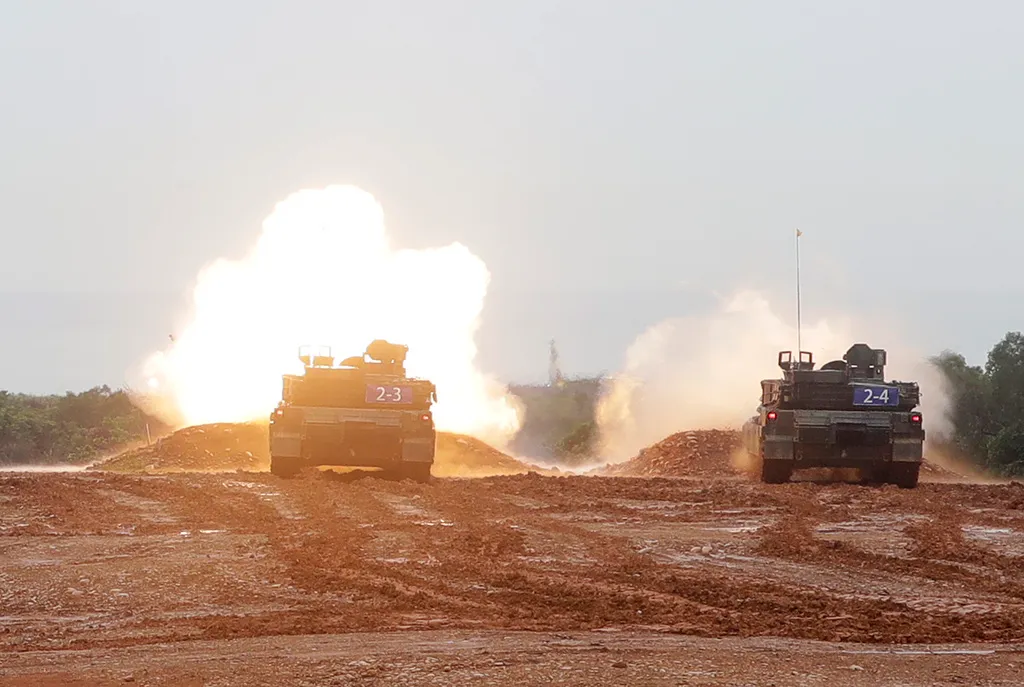President Donald Trump reportedly denied a deal that would have provided $400 million in military aid for the island of Taiwan.
The decision has not been finalized and could still be reversed, but reports indicate that the White House hopes to arrange a weapons sales agreement instead.
“The U.S. has long supported Taiwan in strengthening its defense capabilities,” the Taiwanese Ministry of Foreign Affairs said in a statement. “As a responsible member of the region, Taiwan is determined and will continue to strengthen its self-defense capabilities, cooperate with the United States and other friendly allied countries, jointly deter aggression, and ensure regional peace and stability.”

Trump’s decision is a departure from the long-standing military aid allocations offered to the contested island territory, which five sources revealed to the Washington Post under condition of anonymity.
The president is empowered to provide up to $1 billion in aid packages to Taiwan per fiscal year. Previous administrations have made wide use of this budget, frequently rolling out hundreds of millions of dollars in munitions and defensive technology.
Taiwan is not recognized as an independent country by the U.S., which holds to a One-China policy favoring the People’s Republic of China. Under this arrangement, the U.S. military cooperates with the Taiwanese armed forces, and the two countries share economic relations without formal diplomacy.
Any official communications between the U.S. and Taiwan risk souring Sino-American relations, complicating inter-governmental meetings between the White House and Taipei.
Trump is preparing to meet with Chinese paramount leader Xi Jinping at the upcoming APEC Summit in November, the first face-to-face discussion between the two leaders since the president returned to office.
The U.S. hopes to hash out a trade deal that could end its economic cold war with Beijing, which has seen escalating threats of tariffs in excess of 145%.
Any gesture of support to Taiwan, even if it does not explicitly contradict the One-China policy, will likely frustrate Xi and make negotiations more difficult.
Taiwan is also struggling to carve out its own trade deal with the U.S., though its government is hampered by its lack of formal diplomacy.
Taiwanese President William Lai has asserted that while his country and the U.S. do not necessarily align on every issue, Trump has bolstered support for the island compared to past administrations.
“The United States shoulders the responsibility of safeguarding global security and peace, while at the same time, it also faces its own domestic challenges,” Lai said. “In trade negotiations, we must, of course, act in accordance with our national interests and the interests of our industries, while also safeguarding food security and the health of our people.”
TAIWAN SEES ITS FUTURE ‘CLOSELY LINKED’ TO THE ‘DESTINY OF UKRAINE,’ FOREIGN MINISTER SAYS
“However, in diplomacy, defense, and other areas, cooperation with Taiwan, and the assistance extended to Taiwan, has not ceased or diminished under President Trump; on the contrary, it has continued to grow stronger,” Lai continued.
Taiwanese representative to the U.S. Alexander Yui, the island’s de facto ambassador to Washington, reportedly participated in a low-profile meeting with the President’s Intelligence Advisory Board.
The group, a purely advisory council for the White House, insists that the meeting was simply an informal gathering of members and Yui, not an official meeting.

















